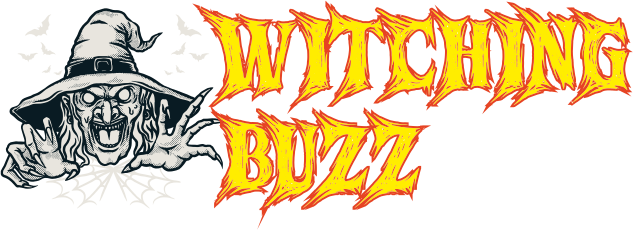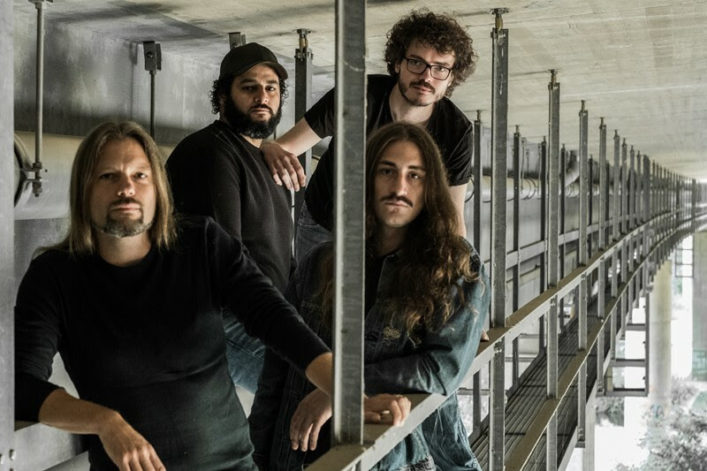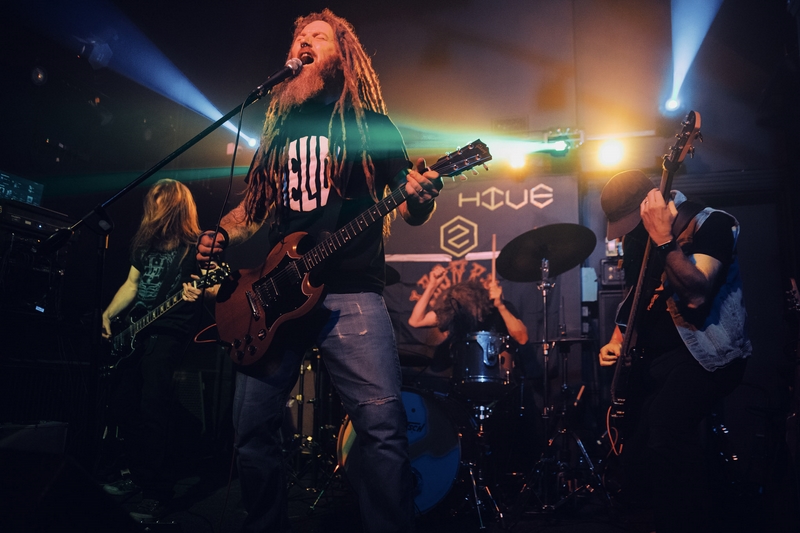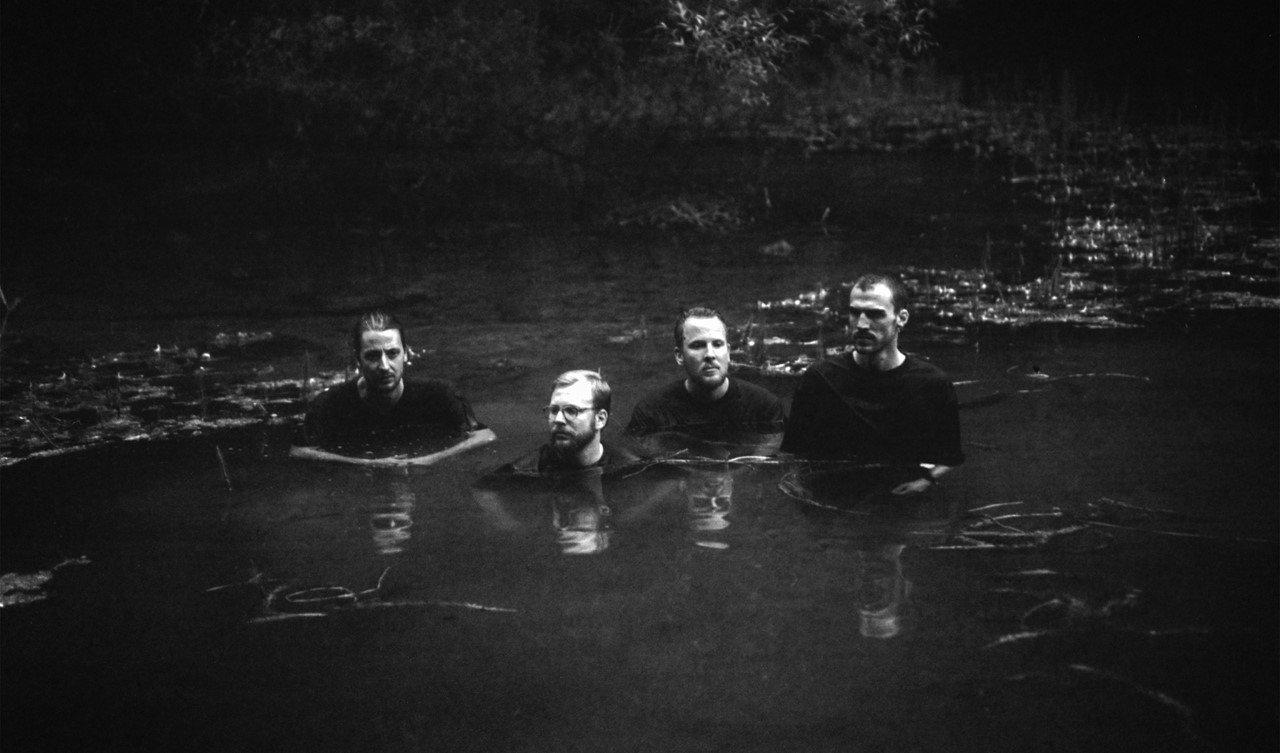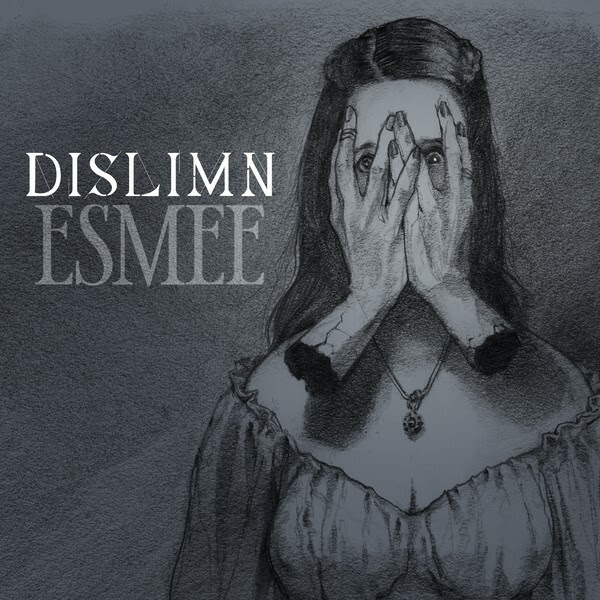PLASMAJET formed in 2014 in Giessen, united by their passion for metal, stoner, rock, and blues. After their 2015 demo and over 40 live shows, including festivals like M.I.S.E. Open Air and support for Bushfire and Earthship, they released their debut album United Dementia in 2018 to critical acclaim. Despite lineup changes and the pandemic, the band return stronger than ever with their upcoming second album Solastalgia.
The Origin & Identity:
How did you all come together as a band, and when did it feel real?
Dennis: We played our first gigs as Plasmajet in 2015 right after I joined on Bass earlier that year. To me, it felt really good and real from the beginning. Lars and our first drummer, Till, started jamming somewhere in 2014. During that time, a friend of mine heard them in their rehearsal room, knocked on the door to listen in, and later joined on guitar. He later brought me on board.
A couple of years and lineup changes later, we now are Lars on vocals and guitar, Jannik on guitar, John on drums, and me on bass.
Where did your band name come from, and why does it feel like you?
Dennis: Coming home late and watching some documentary on black holes. Whoa man! That kinda feels like us.
Did you have a clear vision for your sound from the start, or did it develop naturally?
Dennis: Plasmajet is not really a ‘clear vision’ type of band. We basically only play stuff that feels good to all of us.
What should listeners know about your newest album?
Dennis: ‘Solastalgia’ turned out to be somewhat of a concept album. We didn’t plan that. While arranging the running order, we realized that the songs could describe the daily routine of getting up in the morning and going to sleep at night, plus the messed-up things one might encounter in between. Kind of like a vicious cycle.
Influences & Creative Process:
Who or what has shaped your sound in ways people might not expect?
Dennis: For me personally, it’s bands like Converge or Thrice. Not so much in the way Plasmajet sounds, more like their approach to keeping musical development going is inspiring to me.
When creating a song, do you follow a routine or mix it up each time?
Dennis: For this record, we had two routines. Sometimes it’s jamming and developing somebody’s riff idea together in our rehearsal space until we’re happy. And some songs are loosely based on demos Lars and I recorded at home. For example, ‘Show Me How To Fly’ was one of those demo songs, while ‘A Single Mind’ started during a jam.
Are there moods, riffs, or ideas you find yourself returning to?
Dennis: We like drop C tuning. I think that counts as a mood.
How do you make writing decisions — together or does someone usually lead?
Dennis: It’s a democratic group effort. If we can’t agree on something, we usually don’t play it.
Musical Technique / Composition:
When layering sounds, do you focus more on tone or on mood?
Dennis: Well, you can’t have one without the other. A tone from any instrument or voice can evoke some kind of mood, and that also works the other way around. Doesn’t matter if it’s recorded or in a live setting. So to me, they are kind of the same thing or at least equally important.
The intro section to ‘Get Up Again’ is a good example of that.
Do you use alternate tunings, odd meters, or unusual chords to shape your sound?
Dennis: Most of our songs are in drop C and sometimes in D standard. So nothing unusual. We’re also not consciously writing in odd meters, though they do happen occasionally. ‘He,y cool riff!’ – ‘Oh, it’s in 3’ something along those lines.
What we do try is not to always go for the old Intro/Vers/Chorus/Vers/Chorus/Solo/Chorus/End thing.
How much of your arrangements come from improvisation versus planning?
Dennis: Most of the arranging is just how we play together. After the basic tracks had been recorded, we found some spaces where we added some stuff during recording.
Some parts we’re left blank until we record them. The solo to ‘All This Dead Time’ is one of those things.
Stories & Experiences:
What’s one moment that truly captures what this band is about?
Dennis: Too many to count and too many to pick just one. We can be a pretty absentminded bunch, which usually leads to a lot of laughs.
Does playing live bring out a different side of your music?
Dennis: Playing live is the fun part for us. Usually, it gets more intense than the recording.
What’s the quirkiest experiment you’ve done in the studio?
Dennis: I got to record some spacy lap steel guitar on ‘Solastalgia’. Never did that before 🙂
Has a fan ever done or said something that made you see your music differently?
Dennis: Yes. Shoutout to my buddy Daniel!
Current Inspirations & Recommendations:
Any up-and-coming musicians you think deserve more attention?
Dennis: Anything DIY from your local scene is probably worth checking out. If there is no such thing in your area, go start it.
Vision & Reflection:
Where do you see your sound heading next? Any experiments you’re itching to try?
Dennis: I’d love to do the basic tracks live in a room together, not one after the other.
Which track do you feel captures your band best, and what’s the story behind it?
Dennis: ‘Interstellar Haze’ is a pretty good summary. The story behind it is probably a bit too long to share here.
What do you hope people feel when they sink into your music?
Dennis: Never thought of that. Some sort of calm happiness, maybe?
Turbo Regime:
Fuzz or distortion?
Dennis: Distortion on guitar, Fuzz on Bass.
Analog or digital effects?
Dennis: Don’t care as long as it works.
Sabbath or Zeppelin?
Dennis: Zeppelin.
Heavy riff or mind-bending solo?
Dennis: Praise the riff.
Vintage gear or modern kit?
Dennis: As I said, I don’t care as long as it works.
https://plasmajet.bandcamp.com/music
https://www.instagram.com/plasmajet.band/
